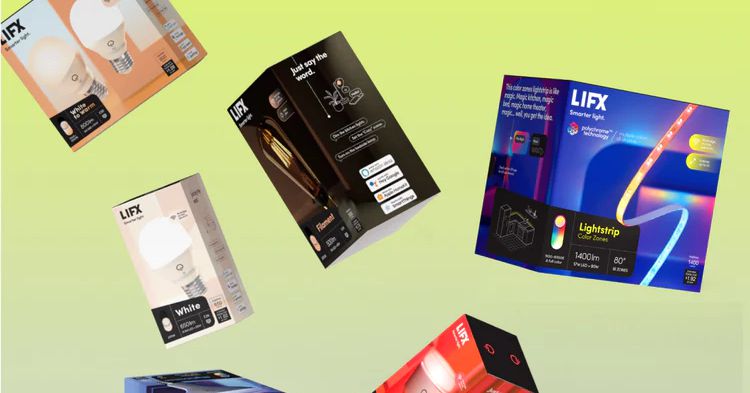
A few years back, there were two big names in the high-end smart bulb game — Philips Hue, which worked with a proprietary Zigbee bridge, and LIFX, which worked over Wi-Fi, no extra white plastic box required. (We all know how much people hate hubs and bridges cluttering up their smart homes.) Yet, the Zigbee-based Hue went on to become the Kleenex of smart lighting, whereas LIFX went into receivership earlier this year.
However, there’s good news for LIFX customers and for the smart home in general. California-based Feit Electric has stepped in and snapped up LIFX from its bankrupt Australian owner Buddy Technologies and says it will keep LIFX alive.
“Feit Electric will offer the current suite of LIFX products and plans to expand the line with innovations,” Feit’s senior director of global marketing, Dana Knight, told The Verge in an email. She also confirmed that the full line of LIFX products would continue to be manufactured and that Feit will maintain and build on the LIFX app and cloud platform. Additionally, the LIFX Downlight will still be released this year, and there are new products planned for 2023.
Initially a promising smart home Kickstarter success story, LIFX made its name selling high-quality, super-bright, color-changing light bulbs that connect directly to Wi-Fi and are compatible with Google Home, Amazon Alexa, and Apple HomeKit. Founded in 2012, the same year Philips Hue started life, the company was full of ideas and expanded rapidly into various light bulb shapes and light strip offerings, even developing a Nanoleaf light panels competitor.
But by 2020, LIFX was sorely lacking in execution. Barely any of the products LIFX announced at CES that year made it to market, the light panels disappeared, and we’ve seen nothing from them since. But with this purchase, we now know that new LIFX lights are on their way.
:no_upscale()/cdn.vox-cdn.com/uploads/chorus_asset/file/23923766/81VL9KVCfmL._AC_SL1500_.jpg)
Feit Electric is a global lighting brand that you may not have heard of but whose products you probably own. It’s a major supplier of pretty much every type of light bulb and light fixture (including smart bulbs that work over Wi-Fi). Its products are ubiquitous in stores such as The Home Depot, Costco, and Lowe’s. “Our strength at Feit Electric has been in the robustness of our supply chain, our manufacturing acumen, and our relationships with a long list of US retail mainstays,” said Knight — something that should help with LIFX’s ongoing distribution issues.
Feit’s own smart home products will remain separate from LIFX, and Knight said the company will continue to develop both platforms (LIFX and Feit). “LIFX will remain as its own line distinguished by the superior user experience the custom-built platform can enable,” she said.
A LIFX representative confirmed the acquisition on an active LIFX Reddit forum, where many users had been complaining about issues with cloud connectivity over the last few months and expressing concern that their bulbs were heading for obsoletion.
The post assured existing customers that Feit Electric would continue to support LIFX product owners globally. “We hope this move for the brand will reassure users and customers who have been nervous in the last couple of months about the continuity and continuation of the LIFX experience and ecosystem,” wrote the anonymous employee. Feit’s Knight confirmed to The Verge that most of the LIFX team based in Australia would continue to work with LIFX.
While LIFX has built a reputation for quality products and has attempted a number of innovations (there’s this infrared night vision light, and who can forget the germicidal light bulb?), the smart lighting market is far more thoroughly saturated than when the company started 10 years ago. There are hundreds of Wi-Fi-powered, color-changing smart bulbs available on Amazon for a lot less than LIFX charges; its A19 color bulb is $35. Meross will sell you a four-pack for $50 (and yes, they also work with HomeKit).
There’s also the upcoming smart home standard Matter to contend with, which promises to make every device work with every platform. That nullifies one of LIFX’s key selling points: HomeKit compatibility. Knight confirmed that the plan is to support Matter in both LIFX and Feit Electric products. “Like everyone, we’re looking at what products might require hardware changes to support etc. Not all will be backward compatible,” she said. “But we’re aligned with the goal and mission of the project.”
But Feit will have to lean hard on that promised innovation front if it’s going to resurrect LIFX’s fortunes. While the demand for Philips Hue’s pricey products shows there’s an appetite for higher-end smart lighting, it needs to be backed up with both a reliable platform and an innovative one.